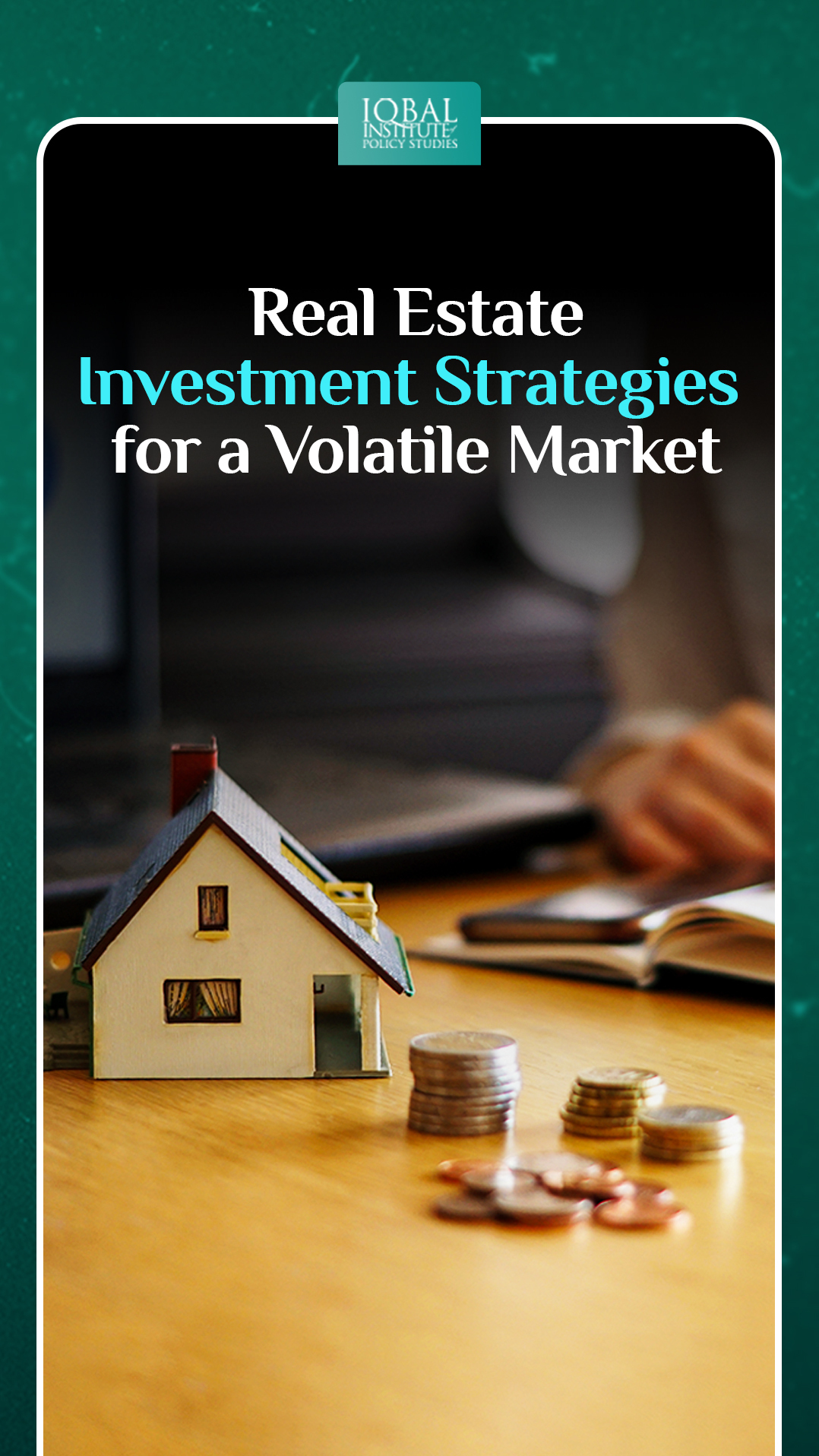Real estate investment is often regarded as a lucrative and reliable way to invest. Nonetheless, the real estate market can pose challenges due to its inherent uncertainties and fluctuations. In the real estate sector, market volatility can stem from a myriad of factors such as change in market trends or demand of customers. Moreover, the market, similar to a real estate business, typically operates in cycles. The aim is to minimize deviations from the usual pattern. Sometimes, market forces beyond personal control may require resilience to navigate challenging periods, which could persist for a few weeks or even several months. Therefore, it is crucial for investors to understand how to navigate these uncertain conditions for achieving long-term success. Investors should maintain liquidity, be patient, and seek advice if needed to enhance their position in a volatile market.
Factors that Impact Market Volatility
Market volatility means quick and significant changes in real estate prices because of different economic, political, or social factors. These changes can impact property values, rents, and how confident investors feel. Understanding why the market is changing is important for making good investment plans. Following are some of the factors that impact market volatility.
Economic Crisis: The state of the economy, including periods of recession, sudden shifts in interest rates, and fluctuations in employment rates, can significantly sway real estate values and alter the level of demand within the market.
Legislative Adjustments: Amendments to regulations, reforms in tax structures, or the introduction of new policies can create an atmosphere of uncertainty within the real estate sector, thereby influencing investment decisions and market dynamics.
Global Incidents: Geopolitical conflicts, natural disasters, or economic upheavals on an international scale can reverberate across local real estate markets, triggering fluctuations in property prices, investment trends, and consumer sentiments.
Balance of Supply and Demand: The delicate equilibrium between property supply and evolving demographics can play a crucial role in dictating real estate prices and the demand for rental properties. Oversupply in specific market segments and demographic shifts can contribute to significant fluctuations within the real estate landscape.
What are the Strategies?
Following are some of the real estate investment strategies for a volatile market.
Craft a Detailed Investment Strategy
Crafting a detailed investment strategy is crucial for navigating through unpredictable market conditions. It serves as a roadmap that not only keeps one grounded but also helps investors make informed decisions during turbulent times. The investment plan should encompass specific and measurable goals, whether they are short-term or long-term. Additionally, it should outline the specific steps investor will take to achieve these goals, including the types of assets one intend to invest in and the amount of risk they are willing to take.
Furthermore, the plan should include a thorough analysis of your financial situation and how various market scenarios may affect the investments. By understanding the risk tolerance, one can determine the appropriate mix of assets that align with investor’s comfort level.
Risk Management Strategies for Real Estate Investors
Diversification is a fundamental risk management tool in a volatile real estate market. By spreading investments across different property types and locations, investors can protect themselves from the adverse effects of market downturns in specific sectors. Additionally, hedging strategies, such as the use of derivatives and options, can provide a safeguard against potential losses, allowing investors to offset risks associated with market volatility. Moreover, effective liquidity management ensures that investors maintain adequate reserves to capitalize on investment opportunities that may arise during market fluctuations.
Long-Term Investment Approaches for Volatile Markets
While market volatility may trigger a sense of urgency, adopting a long-term investment approach can yield significant benefits. Investors who prioritize long-term growth over short-term gains are better positioned to withstand market fluctuations and achieve sustainable returns. Research has shown that patient investing not only helps in weathering market downturns but also provides ample time for assets to appreciate in value, especially in volatile market conditions.
Analyzing Economic Indicators and Real Estate Investment
Understanding the correlation between key economic indicators and real estate investments is critical in a volatile market. Economic indicators such as GDP growth, interest rates, and inflation rates can significantly influence property values and market trends. Thus, investors need to closely monitor these indicators and their impact on the real estate sector to make informed investment decisions. Incorporating economic forecasting models into investment strategies can provide valuable insights into future market trends, enabling investors to adjust their portfolios accordingly.
Technological Solutions for Mitigating Volatility
Technological advancements have revolutionized the way real estate investments are managed and analyzed, providing investors with tools to mitigate risks associated with market volatility. AI-driven data analysis and predictive modeling have become instrumental in identifying market trends and forecasting future property values. Additionally, the integration of machine learning algorithms has empowered investors to make data-driven decisions, enhancing the overall efficiency and effectiveness of investment strategies in volatile real estate markets.
Regulatory and Legal Considerations for Investors
Navigating a volatile real estate market requires a comprehensive understanding of the regulatory and legal landscape. Investors must adhere to the regulatory framework governing real estate investments and stay informed about any changes in compliance requirements. Conducting thorough due diligence and seeking legal counsel can help mitigate potential legal risks and ensure a smooth and secure investment process.
Conclusion
While volatility is an inherent aspect of the real estate market, investors can employ various strategies to mitigate risks and capitalize on opportunities. By diversifying their portfolios, adopting a long-term investment perspective, leveraging technological solutions, and staying informed about regulatory and legal considerations, investors can navigate market volatility and achieve sustainable returns. A well-informed and strategic approach is key to thriving in volatile real estate markets, ensuring that investors are prepared to adapt to changing market conditions and make sound investment decisions.
This article is written by Haneen Gul. Haneen is a research analyst at the Iqbal Institute of Policy Studies (IIPS).



Leave a Reply